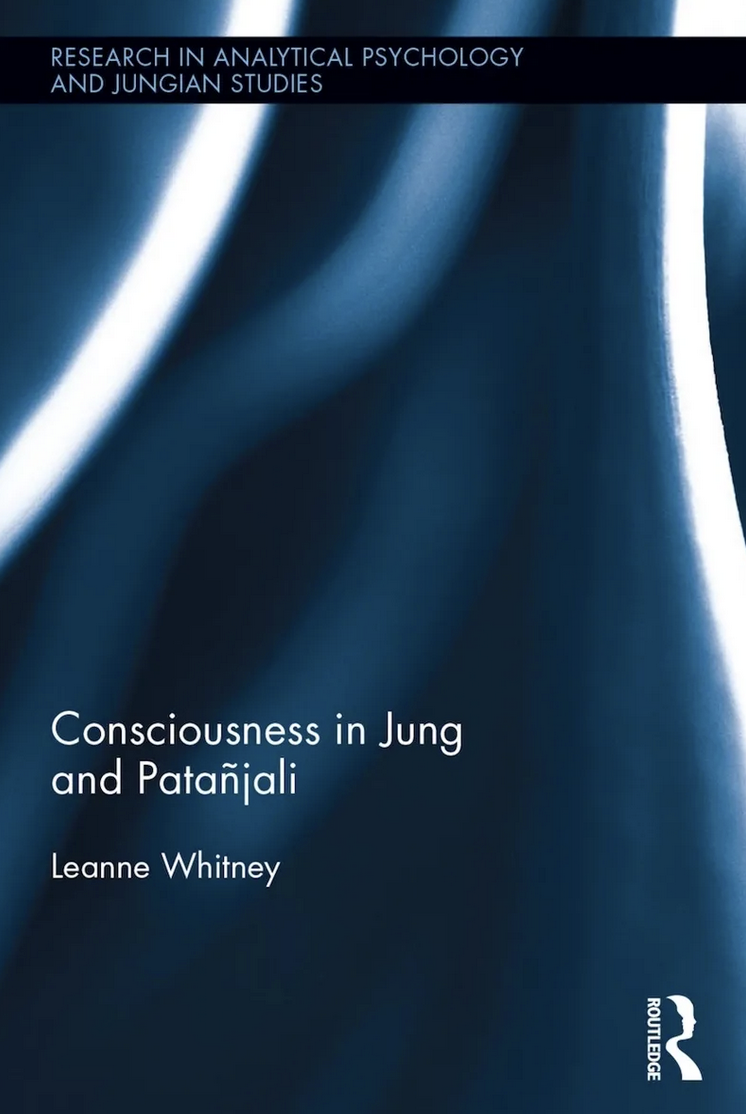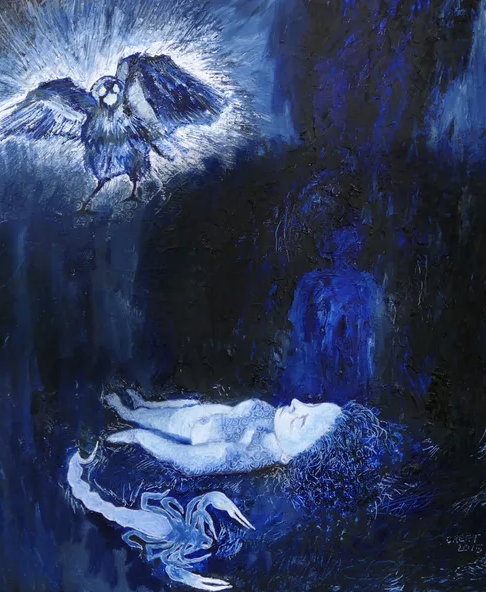Consciousness in Jung and Patañjali
ABOUT:
The East-West dialogue increasingly seeks to compare and clarify contrasting views on the nature of consciousness. For the Eastern liberatory models, where a nondual view of consciousness is primary, the challenge lies in articulating how consciousness and the manifold contents of consciousness are singular. Western empirical science, on the other hand, must provide a convincing account of how consciousness arises from matter. By placing the theories of Jung and Patañjali in dialogue with one another, Consciousness in Jung and Patañjali illuminates significant differences between dual and nondual psychological theory and teases apart the essential discernments that theoreticians must make between epistemic states and ontic beliefs.
Patañjali’s Classical Yoga, one of the six orthodox Hindu philosophies, is a classic of Eastern and world thought. Patañjali teaches that notions of a separate egoic “I” are little more than forms of mistaken identity that we experience in our attempts to take ownership of consciousness. Carl Jung’s depth psychology, which remains deeply influential to psychologists, religious scholars, and artists alike, argues that ego-consciousness developed out of the unconscious over the course of evolution. By exploring the work of key theoreticians from both schools of thought, particularly those whose ideas are derived from an integration of theory and practice, Whitney explores the extent to which the seemingly irremediable split between Jung and Patañjali’s ontological beliefs can in fact be reconciled.
This thorough and insightful work will be essential reading for academics, theoreticians, and postgraduate students in the fields of psychology, philosophy of science, and consciousness studies. It will also appeal to those interested in the East–West psychological and philosophical dialogue.
JOURNAL REVIEWS:
Consciousness in Jung and Patañjali has been reviewed in:
The Journal of Analytical Psychology, January 2019
The International Journal of Jungian Studies, March 2019
WHERE TO PURCHASE:
Consciousness in Jung and Patañjali is available in hardcover and paperback from various online retailers, including Abe Books and Amazon. An eprint is also available from several vendors, including Barnes and Nobles Nook, Amazon Kindle and Apple iTunes. To order or rent a copy directly from Routledge, please click here. Currently all Routledge texts are 20% off.
ONLINE INTERVIEW:
To watch a brief 7-minute overview of the book, please click here.
Reviews
-
"When Carl Jung studied Yoga traditions, he dealt with an abstraction, a relic of the exotic "other." With wide practice of Yoga worldwide, one can no longer dismiss its insights as inappropriate for non-Asians. Leanne Whitney's book updates our thinking about Yoga and shows its benefits to contemporary psychotherapeutic theory and practice."
Christopher Key Chapple, Doshi Professor of Indic and Comparative Theology and Director, Master of Arts in Yoga Studies, Loyola Marymount University, USA.
-
"Consciousness in Jung and Patañjali is a brilliant analysis of Western and Eastern concepts of consciousness, motivated by the author's personal experience that there's something beyond a materialistic brain-based explanation of consciousness. A deep dive into personal ego, impersonal awareness, dual and nondual realities, and beyond. Highly recommended."
Dean Radin, PhD, Chief Scientist, Institute of Noetic Sciences, USA
-
"Dr Whitney's book is an important contribution to those of us interested in the East-West dialog about the nature of consciousness. She has the rare gift of expertise in both Jung's psychology and Patañjali's metaphysics, and her text reveals the important similarities and distinctions found in the work of these two gigantic figures. Students of transformation will benefit by Dr Whitney's clear articulation of the ways in which depth psychology and yoga philosophy complement each other."
Lionel Corbett, Professor, Pacifica Graduate Institute, USA
-
"The book hardly exceeds 150 pages in length, but its substance outperforms its physical weight by far. From a proper background of what is ontically undivided, it is Whitney's vision that a 'depth psychology-classical yoga fusion can yield a contemporary, and more lucid, understanding of the multiplicity of forms on the foreground. I couldn't agree more."
Harald Atmanspacher, Zürich, writing in the Journal of Analytical Psychology, 2019.
-
"This book is an important contribution to the East-West dialogue that Jung considered so necessary. Too, this book continues a tradition whose genesis may be attributed to a then young scholar of Jungian psychology who, in 1985, published Jung and the Post-Jungians. Andrew Samuel's seminal reference to the evolution of Jungian thought introduced many of the critiques of Jungian orthodoxy that are topical today. Dr. Leanne Whitney's book continues this tradition with a provocative inquiry that makes us reconsider the aspects of the Abrahamic and Enlightenment traditions that are impediments to actualizing our own higher consciousness.”
Robert Mitchell in the International Journal of
Jungian Studies 11 (2019) 79-92
Recent Articles
The Sleep Paralysis Nightmare, Wrathful Deities, and the Archetypes of the Collective Unconscious
The sleep paralysis nightmare has been reported from antiquity to modernity across manifold cultures. Many people who experience nocturnal assaults by dark entities, demons, hags, or incubi during sleep paralysis ascribe them to evil spirits with varying degrees of malevolence. The majority report the episodes as terrifying, mysterious, and uncanny. Known in the neurocognitive literature as “isolated sleep paralysis” or “sleep paralysis with hypnagogic and hypnopompic hallucinations,” the phenomenon is fascinating to researchers across disciplines because it occurs when we are both asleep and awake, presenting fundamental questions on the subject of conscious experiences in sleep.
This article considers the nightmare of sleep paralysis to be an archetypal psychic process akin to Jung’s night sea journey and having correspondence to the wrathful deities presented in the Tibetan Book of the Dead. With a Jungian perspective directed at artwork created by a person who has experienced sleep paralysis, archetypal imagery emerges and reveals elements missing from conscious view. Utilizing the interpretive frameworks of Jungian-oriented depth psychology and Tibetan Buddhist psychology, this universally experienced nightmare of terror can also be undergone as a dream of transformation with potential for psychological and spiritual growth.
This article was co-written with my colleague Dr. Oreet Rees and was published in Psychological Perspectives: A Quarterly Journal of Jungian Thought, Volume 63, Issue 1, The Forgotten Feminine.
Previously Published Papers
INNATE AND EMERGENT
Innate and Emergent: Jung, Yoga and the Archetype of the Self Encounter the Objective Measures of Affective Neuroscience was published in Cosmos and History: The Journal of Natural and Social Philosophy vol. 14, no. 2, 2018.
In this edition of Cosmos and History, Foundations of Mind VII my work is featured alongside my colleagues at the Foundations of Mind—including Fred Alan Wolf, Bevely Rubik and Christopher Langan.
An open access journal, all articles are available for free.
JUNG, YOGA AND AFFECTIVE NEUROSCIENCE
Jung, Yoga and Affective Neuroscience: Towards A Contemporary Science of the Sacred was published in Cosmos and History: The Journal of Natural and Social Philosophy vol. 14, no. 1, 2018.
In this edition of Cosmos and History, Foundations of Mind V: The New AI Scare, my work is featured alongside my colleagues at the Foundations of Mind—including Fred Alan Wolf, Means Kafatos and Christopher Langan.
An open access journal, all articles are available for free.
JUNG IN DIALOGUE WITH FREUD AND AND PATAÑJALI
Jung in Dialogue with Freud and Patañjali: Instinct, Affective Neuroscience, and the Reconciliation of Science and Religious Experience was published in Cosmos and History: The Journal of Natural and Social Philosophy vol. 13, no. 2, 2017.
This volume also features work by Menas Kafatos, Fred Alan Wolf, and Elizabeth Rauscher.
An open access journal, all articles are available for free.
DEPTH PSYCHOLOGY THROUGH THE LENS OF CLASSICAL YOGA
Depth Psychology Through the Lens of Classical Yoga: A Reconsideration of Jung’s Ontic Reality was published online by The International Journal of Jungian Studies in October 2016.
BEYOND CONCEPTION
Beyond Conception: Ontic Reality, Pure Consciousness and Matter was published in Cosmos and History: The Journal of Natural and Social Philosophy vol. 11, no. 2, 2015.
This volume also features work by Fritjof Capra, Menas Kafatos, and Wolfgang Baer.
An open access journal, all articles are available for free.
JUNG AND NONDUALITY
Jung and Nonduality: Some Clinical and Theoretical Implications of the Self as Totality of the Psyche, co-authored with Dr. Lionel Corbett, was published by The International Journal of Jungian Studies in October 2015.

